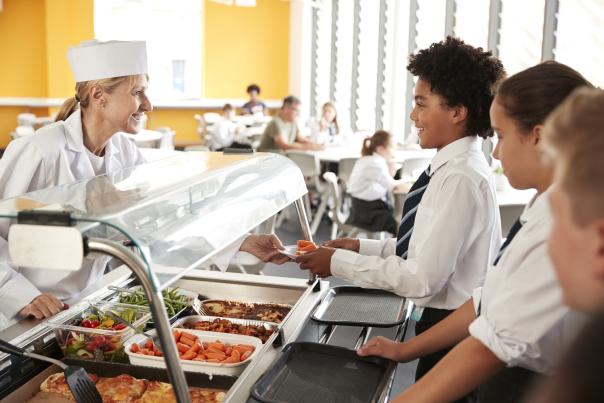Discussion highlights critical issues affecting school meals industry

Michael Hales from England emphasised that funding is a major concern, with England’s current £2.53 per meal falling short. He said LACA was campaigning to increase this to £3 to align with other UK regions and he highlighted the challenges posed by food price inflation, rising staff wages, and the need to review School Food Standards.
He also called for extending Free School Meals (FSM) eligibility to all families on Universal Credit. Sustainability efforts include introducing wonky vegetables and fruits into school meals and moving towards more plant-based options. However, the sector faces staffing shortages, especially post-Brexit, and the difficulty in attracting young people to part-time, term-time roles.
Judith Gregory from Wales discussed the Welsh Government’s commitment to providing Universal Free School Meals (UFSM) for all primary schoolchildren, starting in 2021. The meal rate has increased to £3.20, and the rollout will extend to Years 5 and 6 by September 2024.
This initiative has increased the demand for special diets, prompting a review of support for caterers. Gregory highlighted efforts to support local food producers and the potential for expanding UFSM to secondary schools, budget permitting. Despite increased staffing, the sector still faces pressures, but tools like LACA’s Meals Analyser can offer support.
Chris Ross represented Scotland, pointing out the rising demand for clean labels and special diets. He stressed the importance of making catering roles attractive and creating career pathways. Ross noted the challenge of inconsistent responses to job advertisements across different areas and the need for better succession planning. He advocated for the use of technology to improve productivity and sustainability in smaller kitchens facing staff shortages.
The debate underscored the shared challenges across the UK and the need for coordinated efforts to ensure nutritious and sustainable school meals for all students.
